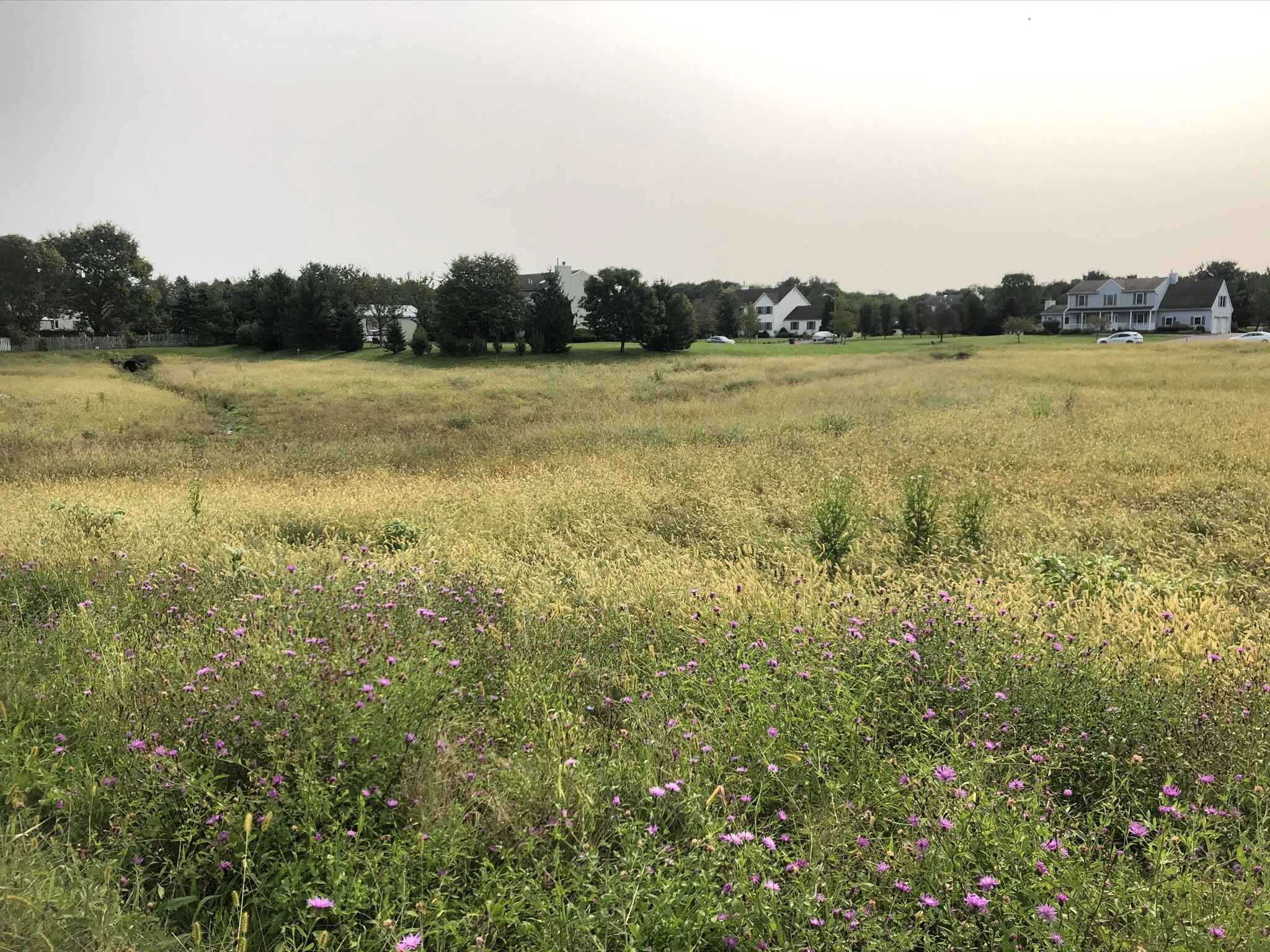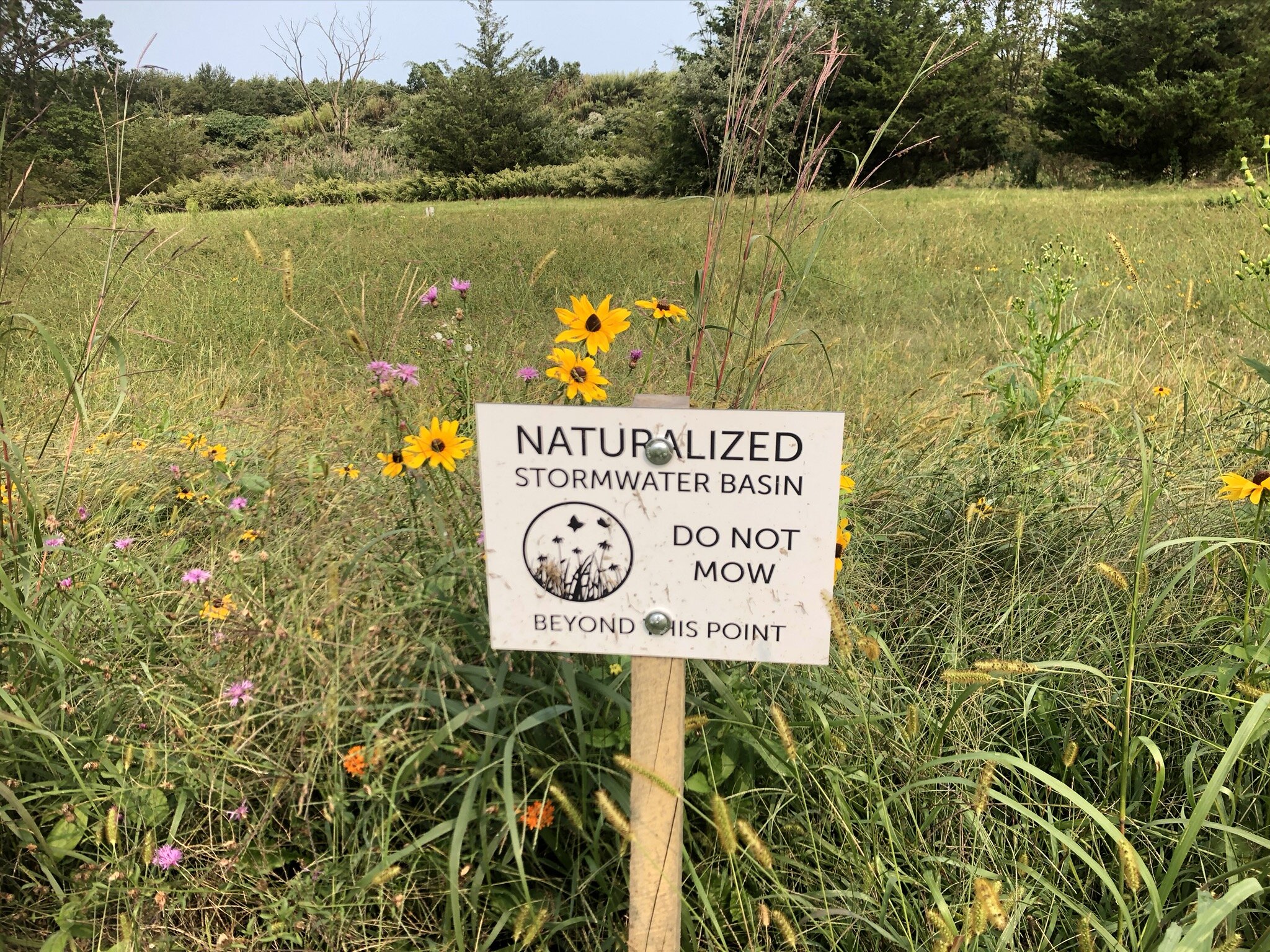Franklin Township (Somerset County) Stormwater Basin Retrofit Projects
The New Jersey Water Supply Authority (the Authority) has worked with Franklin Township, Somerset County, to identify several potential stormwater retrofit projects in areas which drain to the Delaware and Raritan Canal (Canal). Franklin Township owns the stormwater basins and is responsible for maintenance. The stormwater basin projects were prioritized by their potential sediment removal efficiency and project feasibility.
These projects implement actions identified in previous watershed restoration plans and other studies to decrease sediment loading into the Canal. The Canal transfers water from the Delaware River Basin to the Raritan River Basin, where raw water is treated to become drinking water for approximately 600,000 customers living in and near the Raritan Basin.
Utilizing funding from NJDEP’s water quality restoration grants, four stormwater basins were retrofitted in 2020, and a fifth will be retrofitted during the spring of 2021. These basins include:
The retrofitting of each stormwater basin includes:
Removing the concrete low flow channels
Regrading the basins to create berms
Replacing mowed turf grass with native meadow vegetation
Naturalizing the stormwater basins will decrease the amount of sediment entering the Canal and the Raritan River through stormwater runoff. Native meadow vegetation will promote groundwater infiltration and also serve as important pollinator habitat. Basins are designed to drain within 72 hours, which will prevent mosquito breeding.
Beginning in 1997, several of the Canal’s water purveyors reported increased concentrations of total suspended solids (TSS), turbidity, and total organic carbon (TOC) in the raw water following precipitation events. This has resulted in increased chemical use for treatment and increasing residual sludge generation. Studies by organizations such as the United States Geological Survey (USGS) and the Authority found evidence of significant sediment loading into the Canal over its final 11 miles, between Ten Mile Lock and the Route 18 spillway.
Figure 3: A post-retrofit stormwater basin at the Franklin Township Municipal Complex
In 2006, NJWSA completed the “Delaware & Raritan Canal Tributary Assessment and Nonpoint Source Management Project”, which identified 72 stormwater infalls to the Canal in its last 11 miles. The plan identified priority areas for implementation, and NJDEP allocated funding for implementation.
The Cedar Grove Brook Watershed Restoration Plan, completed in 2011, also addressed sediment inputs to the Canal.
The two watershed restoration plans identified several potential projects to improve water quality and reduce sediment loading to the Canal, including stormwater basin retrofits and riparian buffer improvements.
In addition to these stormwater basin retrofits, several other projects have been completed to date:
Installation of a USGS water quality monitoring station at Landing Lane
Retrofit of a dry detention basin to a wet detention basin on the Rutgers Preparatory School property
Installation of a nutrient separating baffle box and five Filterra vegetated inlets in South Bound Brook
Rain barrel workshops in Franklin Township and South Bound Brook Borough
FAQ:
What are the concerns over Total Suspended Solids, turbidity, and total organic carbon?
Total suspended solids (TSS) are particles of sediment, silt, sand, and organic debris such as decomposing leaves and grass floating in the water column. These particles can enter the waterway through erosion and stormwater runoff. Turbidity measures water clarity and has a direct relationship to TSS since higher TSS readings correlate with lower water clarity. Total organic carbon is a measurement of organic molecules in water. These water quality parameters need to be removed or lowered to acceptable levels during the drinking water treatment process. Additionally, these parameters lead to poorer water quality, contributing to higher water temperatures and lower dissolved oxygen in raw water, which can be detrimental to aquatic organisms.
What are those sheds adjacent to Renoir Way and Laird Terrace?
In order to measure the success of the stormwater basin retrofit, NJWSA has deployed automatic water sampling machines housed in sheds at the Laird Terrance and Renoir Way stormwater basins. These automated samplers which are powered by the solar panels and housed in the locked sheds will take samples of the water from the stormwater basin after a rain storm. NJWSA staff will retrieve the samples and send them to a lab for analysis. The objective of this study is to quantify changes in the loading of total suspended solids and turbidity pre-and-post retrofits of the two detention basins. The study will last approximately two to three years.
What will be planted?
Native wildflower meadow seed mixes will be used to replace the current turf grass. The exact mix will be slightly different to fit each site, but typical plants will include:
Bushy Bluestem
Showy Aster
Red Top Panicgrass
Common Milkweed
Butterfly Milkweed
Purple Coneflower
Switchgrass
Little Bluestem
Early Goldenrod
Grassleaf Goldenrod
Black Eye Susan
For additional questions on the project please contact:
Kathy Hale
Principal Watershed Protection Specialist
khale@raritanbasin.org



